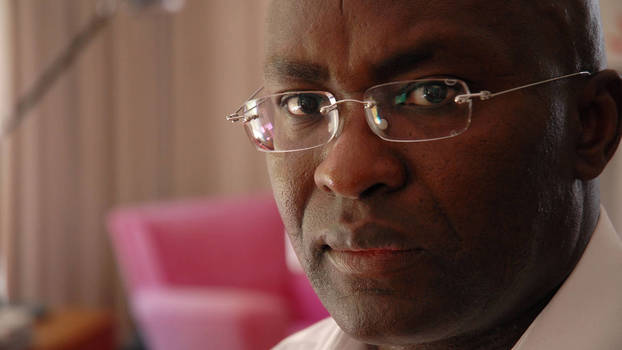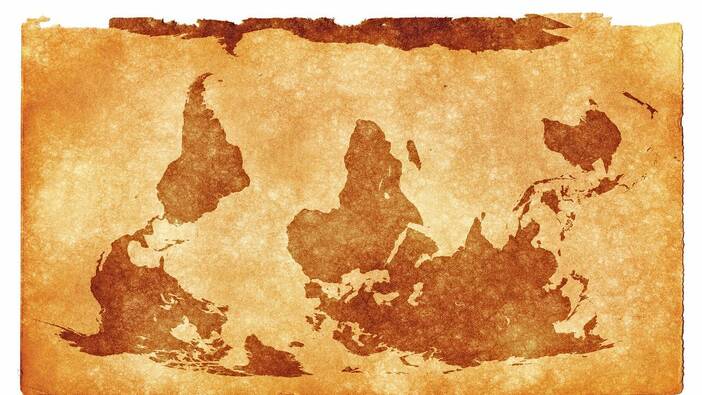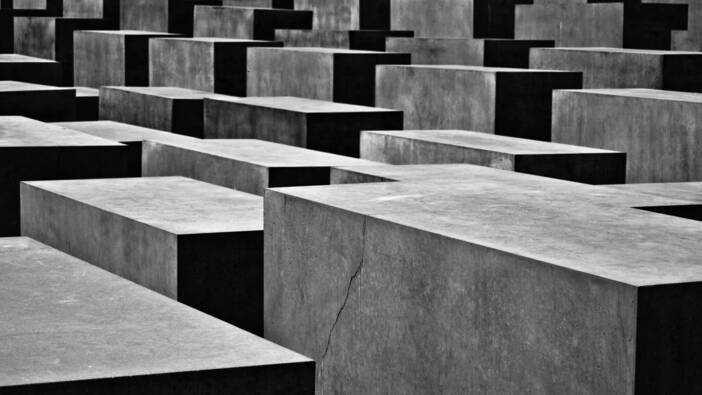
The philosopher and historian Achille Mbembe has become the subject of criticism in Germany. He is said to relativize the Holocaust and to equate Israel with the South African apartheid regime. In doing so, one of the most vibrant thinkers of the history and continuity of racism has been accused of blurring any distinction between anti-Semitism and racism in his elaborations.
How can such an attack, which reduces and de-contextualizes the academic work and political understanding of Achille Mbembe, be explained?
Dorothee Braun is Head of Office at the Rosa-Luxemburg-Stiftung’s East Africa Office in Dar es Salaam, Tanzania.
An epistemology that draws on colonial injustice and the conditions of de-colonization differs from European perspectives that regard the Holocaust as the epitome of genocide. This is almost unthinkable in Germany, as for us the extent of bestiality, the ideological grounding, the bureaucratic and industrialized machinery of extermination is without precedence. In the light of the standpoint of others, grounded in their respective history of violence, located in a shared space, at times characterized by high proximity and popular involvement, another dimension is brought into focus: engaging with perpetrators, rebuilding a common world.
However, in Germany, on the level of society and societal institutions, confronting oneself with perpetration started only after a long delay. In addition, it is questionable whether it is sufficiently researched. We know about the trauma of the victims. We know that unprocessed, insurmountable traumatic experiences may reappear in the second or third generation of Holocaust survivors in the form of enigmatic and partly severely burdensome symptoms. Research about transgenerational transmission of traumatic experiences focuses mainly on descendants of survivors. Less attention is given to the transmission of National Socialism’s legacy to following generations, their confrontation with perpetrator-parents, with shame and guilt, with omnipotence fantasies, hate and outrageous destruction. Studies on the consequences of the Holocaust on society have also taken experiences of war, flight, and expulsion into account. Researchers consider unconscious identification processes as the central element that links generations together.
Psychoanalysis provides a fundamental theoretical framework in the work of Achille Mbembe. Considering rational and conscious as well as sub- and unconscious processes in the explanation of human behaviour is one of the principal tasks of psychoanalysis. In his text “The Society of Enmity”, published in 2016 in Radical Philosophy—one of those texts that has kindled the current discussion about the historian and philosopher—Mbembe grounds his analysis, inter alia, on findings of psychoanalysis and its socially critical assumptions. Hence, he interlaces two levels of analysis: the constitution of the subject is linked with the analytical level of political, economic, and historical conditions. His starting point is the continuous global experiences, lasting hundreds of years, of tyranny, extermination, exclusion, devaluation and debasement.
Intractable conflicts lead conflict parties to develop a uniform group identity, in which each side constructs its identity in supposed opposition to the hostile Other. The differentiation between friend and foe, between belonging to, threatening, or radical Other cannot do without the unconscious. Mbembe introduces the mechanisms of differentiation in his elaboration on colonial injustices. Unleashed—to some extent—unconscious parts, fantasies, desires, and drives (e.g. to master) in an environment that is perceived as entirely hostile, incomprehensible and threatening to one’s own existence, ultimately provoke in the colonial masters the permanent reflex to differentiate, separate and to project.
The apartheid regime stands as an example for the “unity and purity phantasm” inherent to the imaginary of an idealized community that can ultimately, as it is unable to tolerate any difference or deviation, only violently be enforced. But in being forced to distance oneself, the Other transforms into an internal loathsome figure of one’s own self. In doing so, one’s position of power is not only internalized, but also affects fantasies and narratives that accompany one’s faculty of action towards the Other. The imaginary of the hostile Other therefore associates historically and socially produced forms of the devalued and debased, suppressed, denied and repelled with rejected aspects of one’s own self.
Whereas the colonial trauma is understood as identification with the (white) perpetrator and the internalization of a Western representation that depicts blackness as evil and immoral, caught in the colonial situation the dilemma of an ambiguity that forces oneself to acknowledge the ascribed daemonic self while permanently repudiating it cannot be escaped.
What is at stake here is how historical experiences of defence mechanisms against others that are considered as threatening have been inscribed in the constitution of subjectivity. Placing different groups or systems of terror and injustice next to each other does not imply that there is relativization of anti-Semitism and the Shoah in the making, as critics claim. It is rather a call to question our implications, to gain a clear understanding of indirect structural and historical forms of responsibilities that enable and perpetuate injustice, exploitation and domination. We are thereby not only perpetrators or victims but spectators, participants, heirs or beneficiaries. Our implications are diverse, contradictory and modifiable. Reflectivity or the ability to an inner dialogue that questions our position, our own interests and attitudes in relation to power and current as well as historical violence and political injustices can lead to dissent, to collective solidarity.
In view of a discussion that is so bitter and irreconcilable directed against a critical academic of the Global South, the questions remains as to why the perspective of the Other, in the very moment we recognize it, has such an unsettling effect on us?
Does the cause lie in the fact that Mbembe rarely designates a subject in his text? Does leaving the position of the subject empty constantly address us? Question our implication, including open, concealed or internalized enmity that he presents to us as consequences of almost uncontrollable surplus accumulation and all penetrating digitalization?
Or does the cause lie in the initiative that Mbembe takes to apply the psychoanalysis of Freud and Lacan on societal phenomena—and by doing so dragging the unconscious on the surface, unbearable aspects of one’s own self included that has always provoked resistance? And therefore questions our inner ability and willingness to recognize the Other, who is foreign to us, in acknowledging our differences as a sovereign counterpart?
Be that as it may, observed from a distance, the criticism of Achille Mbembe appears like a spinning of sentences out of context, or else of an unbalanced theoretical position. Philosophy, psychoanalysis, and post-colonialism are mixed together, wasting the opportunity to allow the actual progressive, the invoking element to introspection speak, and to accept the invitation for dialogue.
Bibliography
Bohleber, W. [2010]: Destructiveness, Intersubjectivity and Trauma, Routledge, London and New York
Elbe, I. [2020]: Postkolonial gegen Israel, in mena-watch
Fanon, F. [2018]: Alienation and Freedom, BLOOMSBURY ACADEMIC, London; first published in 2015, LA DÉCOUVERTE, Paris
TRANSCRIPT OF H.E. PAUL KAGAME ADDRESS AT YOUTH CONNEKT DIALOGUE, Kigali, 30 June 2013, posted 29 July 2013
Mbembe, A. [2016] : The society of enmity, in Radical Philosophy
Rothberg, M. [2019]: The implicated subject. Beyond victims and perpetrators. Standford University Press, Standford

